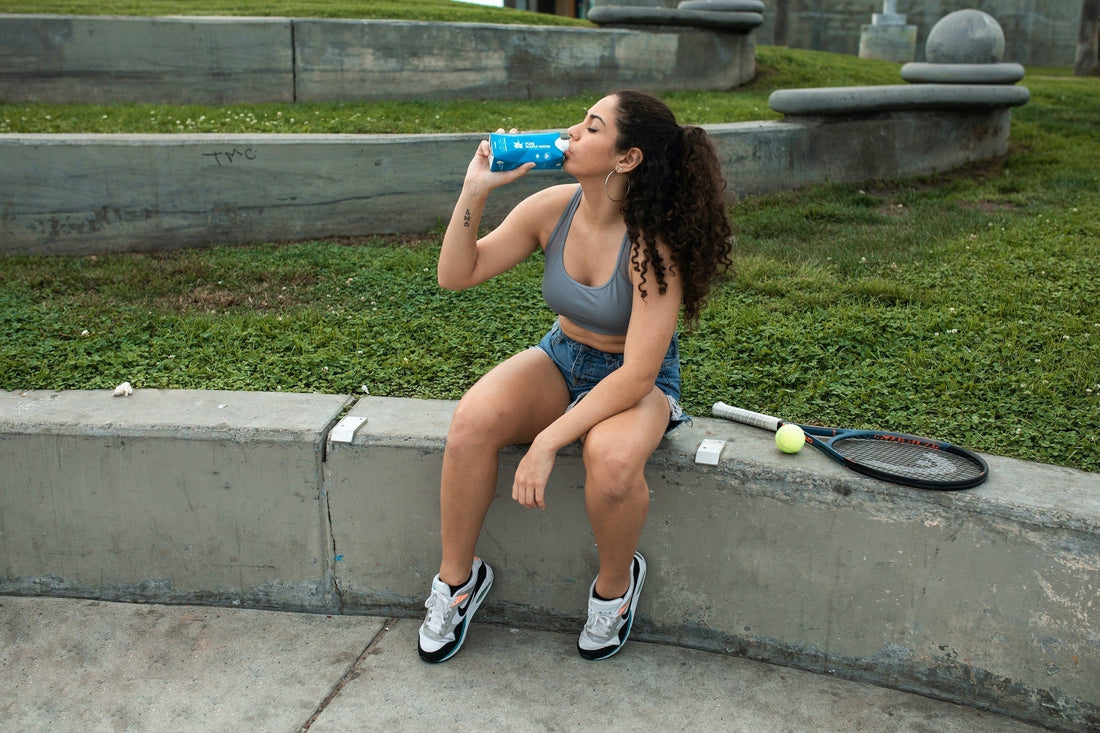
Why Electrolytes Matter (And Why You Might Need More of Them)
Share
Muscles cramping? Feeling foggy? Tired AF? Your electrolytes might be calling for backup.
We’ve all heard it—“Drink more water!” But what you might not hear as often is: don’t forget your electrolytes.
From your mom reminding you during flu season to your coach yelling about hydration after practice, there’s a reason this advice keeps coming back. Because when your electrolyte levels dip, so does your energy, focus, and performance.
So, what are electrolytes exactly—and why are they such a big deal? Let’s break it down, the Keppi way. (Spoiler: it’s not just about sports drinks and sweaty gym sessions.)
Electrolytes 101: What Are They?
Electrolytes are charged minerals (yes, actual electricity vibes) that your body uses to keep everything running smoothly—like your heartbeat, hydration levels, and even your ability to think clearly. They’re the ultimate multitaskers.
Here’s what they help with:
- Transporting nutrients
-
Balancing fluids inside and outside cells
-
Supporting muscles, the brain, and your heart
-
Helping your body recover and rebuild
Basically, they’re the unsung heroes of your wellness routine

The 6 Major Electrolytes (And What They Actually Do)
Let’s meet the VIPs of your internal power grid:
Magnesium
The energy converter. Magnesium transforms glucose into fuel and helps other vitamins work properly. No magnesium = no magic. You’ll find it in spinach, avocados, oats, and yes—bananas.
Chloride
This one’s all about balance. Chloride keeps your body’s fluids and pH in check, supports blood pressure, and helps transport nutrients in and waste out. It plays a major role in digestion, too.
Calcium
Known for bones, but it does way more. Calcium helps muscles contract, nerves communicate, and your heart beat in rhythm. It even supports post-workout muscle repair. Kinda underrated, right?
Sodium
The team captain. Sodium helps regulate water levels, making sure cells stay hydrated and muscles move like they should. But watch out—it’s often overconsumed (thanks, processed food). That’s why a smart balance matters.
Potassium
Your body’s reset button. It helps eliminate dead cells, controls fluid levels in muscles, and keeps your heart from skipping a beat—literally. Bonus: we packed a whopping 1000mg of potassium into every serving of Keppi Electrolytes because you deserve peak performance.
Phosphate (Phosphorus)
This powerhouse helps convert food into energy (thanks, ATP), supports bone repair, and processes carbs and fats. Without it, workouts just don’t hit the same.
When Electrolytes Get Low: The Symptoms to Watch
If you’re losing a lot of fluids—whether from intense workouts, heat, sickness, or even just sweating a ton—you’re also losing electrolytes.
The results? Not cute.
Watch for these red flags:
- Irregular heartbeat or heart palpitations
-
Muscle cramps or twitching
-
Nausea, vomiting, or headaches
-
Fatigue or weakness
-
Brain fog and confusion
-
Constipation or diarrhea
-
Just feeling off
If this sounds like you, it’s time to replenish.
How to keep a healthy electrolyte level
Don’t wait until your body crashes to refuel. Stay ahead of the curve!

Your body gets electrolytes from food and drinks. If your lifestyle is pretty chill, that might be enough. But if you’re:
-
Living in hot, humid places ☀️
-
Working out regularly (especially high-intensity or endurance) 🏋️
-
Sweating a lot (hello, sauna fans) 💦
-
Following a low-carb or keto diet 🥑
-
Sick or recovering from vomiting or diarrhea 🤒
…then your needs are higher—and supplementation becomes essential.
Here’s how to stay balanced:
-
Hydrate smarter – Not just water, but water + electrolytes
-
Fuel with whole foods – Think leafy greens, avocados, nuts, and beans
-
Use high-quality electrolyte supplements – Like Keppi Electrolytes, with a precise balance of the big six (and none of the junk you don’t need).
When to Take Electrolytes (And Why It Works)
Here’s when to make electrolytes your best friend:
- After intense or long workouts
- On hot or super sweaty days
- While recovering from illness
- If you’re fasting or eating low-carb
- During travel or flights (dehydration alert!)
-
When you just feel off but can’t figure out why
Keppi’s science-backed, flavor-packed Electrolytes mix is your hydration insurance. Just stir, sip, and thrive.
The Bottom Line: Electrolytes = Energy, Focus, and Balance
Electrolytes aren’t just for pro athletes—they’re for anyone who wants to show up fully charged in life. And with Keppi Electrolytes, you’re not just rehydrating—you’re rebuilding, recharging, and recovering the smart way.
Water is great. But water + electrolytes? That’s how you glow.
Ready to level up your hydration game?
Grab your Keppi Electrolytes and get your minerals in check. Your muscles, mind, and metabolism will thank you.
